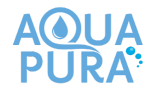Contaminants Detected
Bromate
Bromodichloromethane
Chloroform
Chromium (hexavalent)
Dibromoacetic acid
Dibromochloromethane
Dichloroacetic acid
Haloacetic acids (HAA5)
Haloacetic acids (HAA9)
Perfluorohexane sulfonate (PFHXS)
Perfluorononanoic acid (PFNA)
Perfluorooctane sulfonate (PFOS)
Perfluorooctanoic acid (PFOA)
Radium, combined (-226 and -228)
Total trihalomethanes (TTHMs)
Trichloroacetic acid
Aluminum
Barium
Bromide
Bromoform
Chlorate
Fluoride
Manganese
Nitrate
Perchlorate
Perfluorobutane sulfonate (PFBS)
Perfluoroheptanoic acid (PFHPA)
Perfluorohexanoic Acid (PFHxA)
Strontium
Vanadium
Includes chemicals detected in 2021-2023 for which annual utility averages were lower than an EWG-selected health guideline established by a federal or state public health authority.
Find A Filter
Carbon Filters
Filters 14 Contaminants Exceeding Guidelines (+5 others)
Can reduce the levels of many common contaminants.
Pros
- Lower upfront cost
- Reduced maintenance
Cons
- Does not remove all contaminants
Reverse Osmosis
Filters 16 Contaminants Exceeding Guidelines (+11 others)
Can reduce the levels of many common contaminants.
Pros
- Most effective
Cons
- Higher upfront cost
- Requires more maintenance
- Wastes water
Other Considerations
Ion Exchange
PROS: Softens hard water, Reduces some contaminants
CONS: Doesn’t remove all contaminants
Whole-House Filters
PROS: Useful for reducing radiologicals and TCE
CONS: Expensive to install and maintain, Risk of bacterial contamination
Distillation
PROS: Removes heavy metals and harmful microbes
CONS: Does not reduce most contaminants
Explore filter options for each contaminant. See which technologies are effective at reducing specific contaminants to help you make an informed decision on the best water treatment solution for your needs.
| Contaminant | Activated Carbon | Reverse Osmosis | Ion Exchange |
|---|---|---|---|
| Bromate | ✔ | ✔ | ✔ |
| Bromodichloromethane | ✔ | ✔ | ✘ |
| Chloroform | ✔ | ✔ | ✘ |
| Chromium (Hexavalent) | ✘ | ✔ | ✔ |
| Dibromoacetic Acid | ✔ | ✔ | ✘ |
| Dibromochloromethane | ✔ | ✔ | ✘ |
| Dichloroacetic Acid | ✔ | ✔ | ✘ |
| Haloacetic Acids (HAA5) | ✔ | ✔ | ✘ |
| Haloacetic Acids (HAA9) | ✔ | ✔ | ✘ |
| Perfluorohexane Sulfonate (PFHXS) | ✔ | ✔ | ✘ |
| Perfluorononanoic Acid (PFNA) | ✔ | ✔ | ✘ |
| Perfluorooctane Sulfonate (PFOS) | ✔ | ✔ | ✘ |
| Perfluorooctanoic Acid (PFOA) | ✔ | ✔ | ✘ |
| Radium, Combined (-226 & -228) | ✘ | ✔ | ✔ |
| Total Trihalomethanes (TTHMs) | ✔ | ✔ | ✘ |
| Trichloroacetic Acid | ✔ | ✔ | ✘ |
| Contaminant | Activated Carbon | Reverse Osmosis | Ion Exchange |
|---|---|---|---|
| Aluminum | ✘ | ✔ | ✘ |
| Barium | ✘ | ✔ | ✔ |
| Bromide | ✔ | ✔ | ✘ |
| Bromoform | ✔ | ✔ | ✘ |
| Chlorate | ✘ | ✘ | ✘ |
| Fluoride | ✘ | ✔ | ✘ |
| Manganese | ✘ | ✘ | ✔ |
| Nitrate | ✘ | ✔ | ✔ |
| Perchlorate | ✘ | ✔ | ✔ |
| Perfluorobutane Sulfonate (PFBS) | ✔ | ✔ | ✘ |
| Perfluoroheptanoic Acid (PFHPA) | ✔ | ✔ | ✘ |
| Perfluorohexanoic Acid (PFHXA) | ✔ | ✔ | ✘ |
| Strontium | ✘ | ✔ | ✔ |
| Vanadium | ✘ | ✘ | ✔ |
